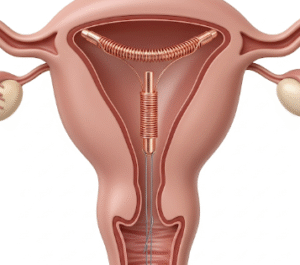Overview
Insensitivity, in a medical context, refers to a reduced or absent ability to feel physical sensations, such as touch, temperature, or pain. It can affect localized areas, specific body parts, or, in rare cases, the entire body. Insensitivity may be temporary or chronic and can result from nerve damage, neurological disorders, systemic diseases, or injury.
In Korea, hospitals and clinics specializing in neurology and rehabilitation provide comprehensive care for patients experiencing insensitivity. Early evaluation and targeted treatment are essential to prevent complications, including injuries, infections, or long-term disability.
Key Facts
- ➔ Insensitivity can manifest as numbness, tingling, or loss of sensation in one or more areas of the body.
- ➔ Causes can range from nerve compression and diabetes to multiple sclerosis or spinal cord injuries.
- ➔ Temporary insensitivity is often reversible, whereas chronic cases may require ongoing treatment.
- ➔ Early diagnosis helps prevent complications such as burns, wounds, or infections in areas with reduced sensation.
- ➔ Treatment in Korea includes neurological evaluation, physical therapy, medication, and advanced rehabilitation programs.
What is Insensitivity?
Insensitivity is a neurological symptom rather than a disease itself. It occurs when the nervous system fails to transmit sensory information effectively from the skin, muscles, or internal organs to the brain. Depending on the location and cause, insensitivity may affect:
- ➔ Localized areas: Such as fingers, toes, or one side of the body, often due to nerve compression or injury.
- ➔ Segmental or regional areas: Often linked to spinal cord or peripheral nerve damage.
- ➔ Generalized insensitivity: Rare but may result from systemic conditions like diabetic neuropathy or congenital disorders.
Insensitivity can affect different types of sensation, including touch, temperature, pain, and vibration sense, impacting daily activities and increasing the risk of unnoticed injuries.
What Symptoms Are Related To
Insensitivity is often accompanied by other neurological or physical signs:
- ➔ Tingling or pins-and-needles sensation (paresthesia)
- ➔ Weakness or reduced coordination in affected areas
- ➔ Burning or cold sensations despite normal temperature
- ➔ Muscle cramps or spasms in nearby regions
- ➔ Difficulty walking, balancing, or performing fine motor tasks
- ➔ Secondary injuries such as cuts, burns, or infections due to unnoticed trauma
Recognizing these associated symptoms helps identify the underlying neurological or systemic condition causing insensitivity.
What Causes / Possible Causes
Several factors can lead to insensitivity, including nerve, spinal, or systemic disorders:
- ➔ Peripheral neuropathy: Often caused by diabetes, infections, or toxins affecting peripheral nerves.
- ➔ Spinal cord injury: Trauma or compression affecting sensory pathways.
- ➔ Stroke or brain injury: May result in loss of sensation on one side of the body.
- ➔ Multiple sclerosis: Autoimmune damage to the myelin sheath can impair sensation.
- ➔ Vitamin deficiencies: B12 or other nutrient deficiencies can cause nerve dysfunction.
- ➔ Infections: Shingles or leprosy can damage nerves leading to localized numbness.
- ➔ Medications or toxins: Certain chemotherapy drugs or heavy metals can cause neuropathy.
- ➔ Congenital conditions: Rare genetic disorders may result in lifelong insensitivity to pain or temperature.
Identifying the exact cause is crucial, as some forms of insensitivity can lead to serious complications if untreated.
When Should I See My Doctor
You should seek medical evaluation if insensitivity is:
- ➔ Sudden or progressive in nature
- ➔ Accompanied by weakness, paralysis, or loss of coordination
- ➔ Associated with unexplained pain, swelling, or injuries in numb areas
- ➔ Affecting balance, gait, or fine motor skills
- ➔ Linked to systemic symptoms such as fatigue, weight loss, or unexplained fever
Early consultation helps prevent permanent nerve damage and allows timely intervention to address the underlying cause.
Care and Treatment
Management of insensitivity focuses on treating the underlying cause, preventing complications, and improving quality of life:
- ➔ Address underlying conditions: Control diabetes, vitamin deficiencies, or autoimmune disorders.
- ➔ Medication: Pain management, nerve-healing drugs, or anti-inflammatory medications depending on the cause.
- ➔ Physical therapy: Exercises to maintain strength, flexibility, and balance in affected areas.
- ➔ Protective measures: Avoid burns, cuts, and injuries in areas with reduced sensation.
- ➔ Assistive devices: Splints or mobility aids may be used in cases of motor impairment.
- ➔ Lifestyle modifications: Balanced diet, regular exercise, and avoidance of toxins or medications that exacerbate nerve damage.
Treatment Options in Korea
Korean hospitals provide advanced neurological and rehabilitation care for patients with insensitivity:
- ➔ Neurology consultation: Comprehensive evaluation including nerve conduction studies, MRI, and blood tests.
- ➔ Rehabilitation programs: Physiotherapy, occupational therapy, and sensory retraining.
- ➔ Medication management: Prescription drugs for neuropathic pain, inflammation, or vitamin supplementation.
- ➔ Minimally invasive procedures: Nerve decompression or targeted injections for compression neuropathies.
- ➔ Long-term follow-up: Monitoring for complications, adjusting therapies, and promoting functional recovery.
Hospitals like Seoul National University Hospital, Asan Medical Center, and Samsung Medical Center offer multidisciplinary care, combining neurology, rehabilitation, and pain management for optimal outcomes.
In Summary: Insensitivity is a symptom indicating impaired sensory perception, potentially caused by neurological, systemic, or congenital conditions. Early diagnosis, protective care, and targeted treatment in Korea can prevent complications, restore function, and improve quality of life.
- ➔ Key Takeaway: Never ignore numbness or loss of sensation, as it can lead to injuries or signal serious underlying disease.
- ➔ Action Point: Seek timely evaluation by a neurologist or specialized physician for accurate diagnosis and treatment.













